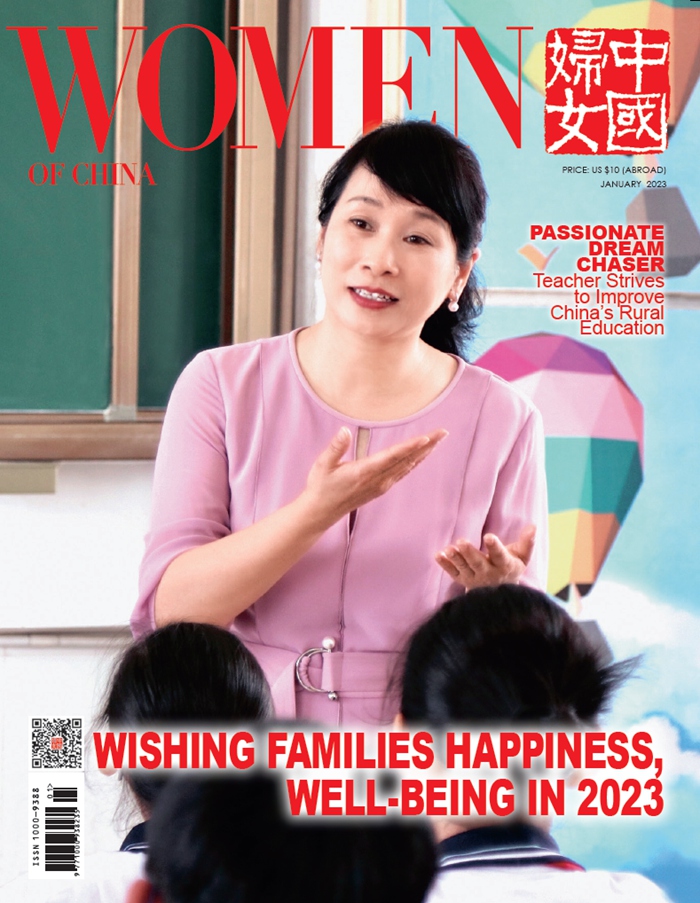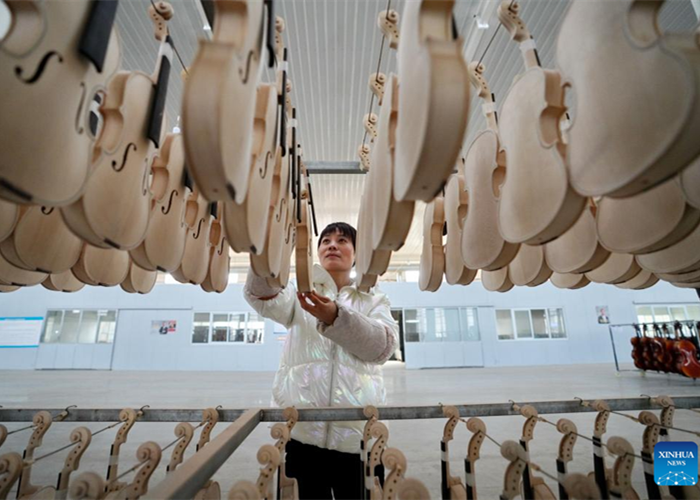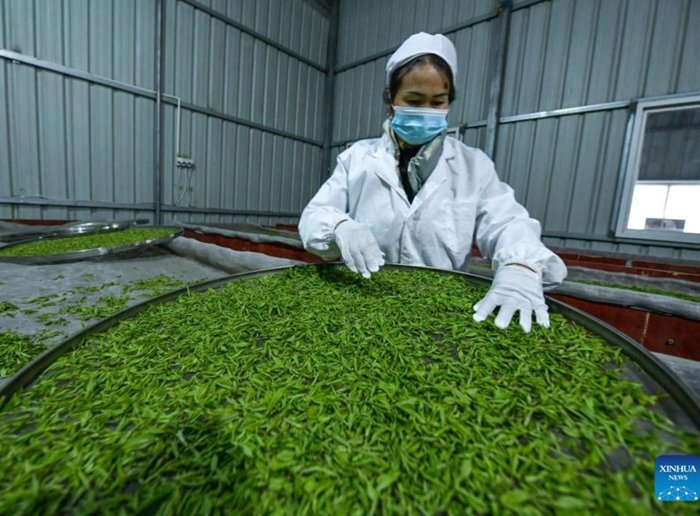Exacting Criteria Paves a Scientist's Road to Success
Bai Rui, a post-doctorate student in life science at Westlake University in Hangzhou, Zhejiang Province became only the third person in China to receive UNESCO's International Rising Talents for Women in Science award on March 12.
The secret to success, she says, is down to the very precise set of standards she has given herself. From the angles at which to place her instruments when adding reagents, to the placement of test tubes, to how her eyes trace the movement of the fluids in each sample, every detail, as insignificant as it might seem, is taken into consideration.
When asked about the necessity of her exacting standards for lab tests, Bai explains that they are in place so that she will never be confused about whether she has added reagents before.
"It's quite repetitive to add reagents in a lab experiment. But if I have strict rules for myself, I'll be very clear of the steps even if I'm disrupted in the middle of an experiment," she says.
The 27-year-old, who was one of the 15 winners of this year's award, has been researching the structure and mechanism of RNA spliceosome since 2014, when she became a graduate student at Tsinghua University in Beijing.
Spliceosome is a huge and complex molecule machine found in eukaryotic nuclei.
Her attempts to perform pathogenesis of spliceosome-related diseases at the molecular level may provide academic insights into potential drug development, she explains.
"Understanding the process of spliceosome is really important as previous studies have shown that 35 percent of genetic disorders are related to a malfunction in the process," says Bai, a native of the Inner Mongolia Autonomous Region.
During her PhD studies, Bai has published five papers in the journal Science and three in Cell, all of which have been cited more than 600 times in total. Bai, who spent only four years to earn her PhD degree — a year and a half shorter than usual — as also the recipient of a top-tier scholarship at Tsinghua University in 2018.
Her passion for this field, she says, lies in her reverence for nature. She says that she is often moved when witnessing through a microscope how living organisms interact with one another.
"It is through this role that I have learned how some substances, as insignificant as they might seem, actually play a vital role in performing regulatory functions within a plant, animal or human body. Everything in our bodies is connected," she says.
Some of the other rules that she has set for herself and her fellows include not chatting and wearing earphones during lab experiments.
"Although all the researchers understand that 99 percent of lab experiments will lead to nothing, I firmly believe that the people factor plays a vital role in how an experiment will turn out," she says.
Before commencing an experiment, Bai would spend time reading the relevant papers and materials about the research and be thoroughly prepared for potential accidents.
The fact that she has always sported short hair since her childhood is another hint of her highly pragmatic nature. Bai has also never worn a dress unless necessary, such as during formal occasions.
Having her mother as one of the teachers in the primary school that she went to could have possibly shaped her into the individual she is today, according to Bai, as teachers' children were always expected to do better than others in class.
Other factors that have contributed to her success today include her being an avid reader since childhood.
"I would wonder what's out there above the skies and why plants are different in different seasons, so I looked for the answers in astronomy and biology books," she says.
Despite her love for books, she always found time for school activities and even sports, having been on the college basketball team during her undergraduate studies at Wuhan University in Central China's Hubei Province.
Bai encourages more women to become life science researchers, saying that there is no glass ceiling in the field of life science.
"I have witnessed several of my female peers discontinue their research and switch to an easier job after getting married and having children because of family and societal pressure," Bai says.
"That won't be the case for me. I want to follow my heart and live the life I want. I will not stop my independent research."
(Source: China Daily)
Please understand that womenofchina.cn,a non-profit, information-communication website, cannot reach every writer before using articles and images. For copyright issues, please contact us by emailing: website@womenofchina.cn. The articles published and opinions expressed on this website represent the opinions of writers and are not necessarily shared by womenofchina.cn.








 WeChat
WeChat Weibo
Weibo 京公网安备 11010102004314号
京公网安备 11010102004314号